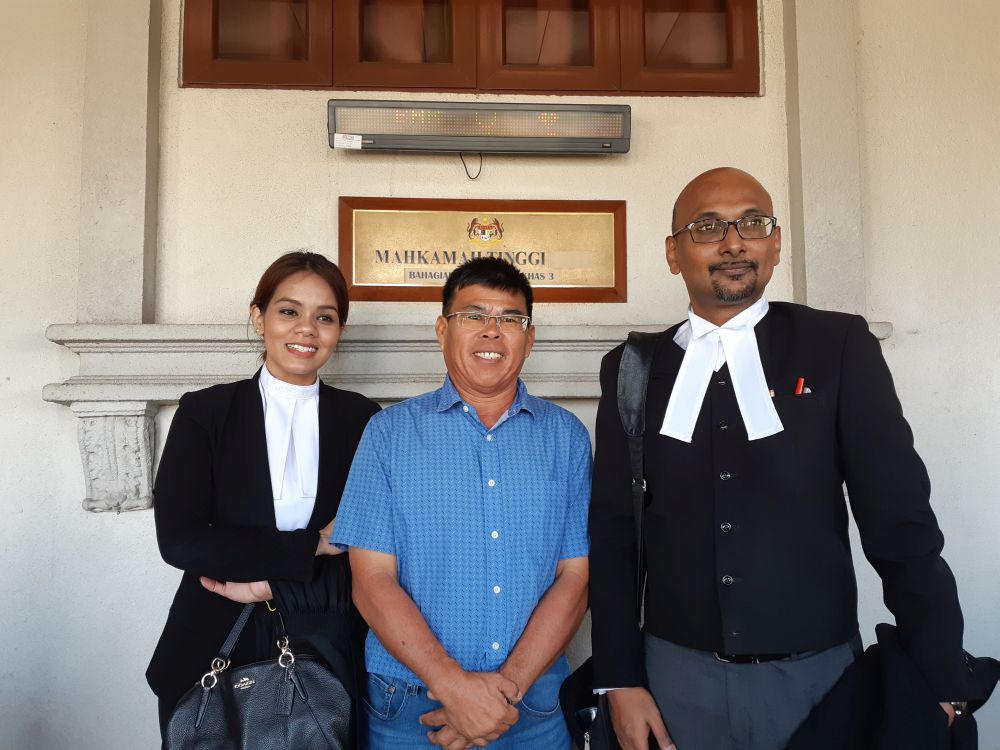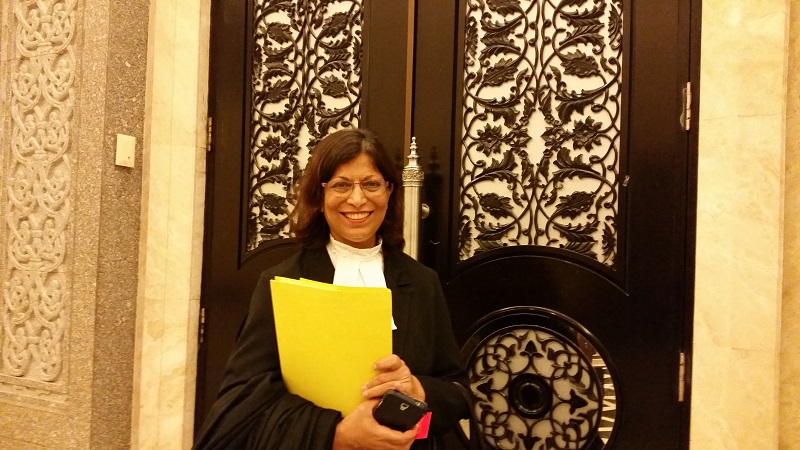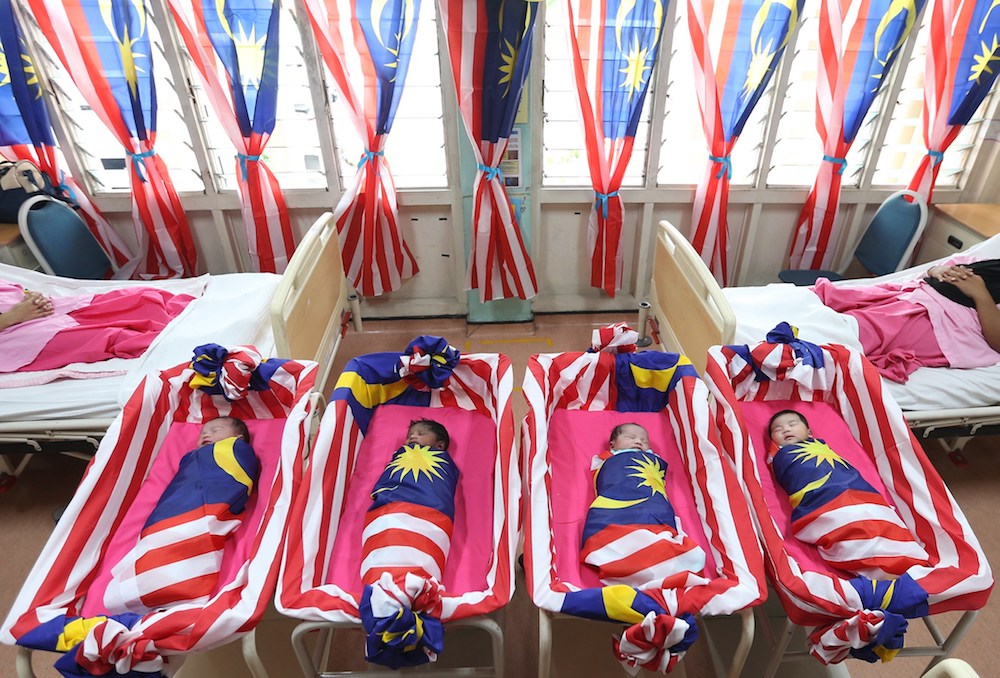KUALA LUMPUR, March 27 — The Malaysian government does not recognise as citizens children born out of wedlock in Malaysia to Malaysian fathers and foreign mothers, which leaves many of them stateless or without a nationality.
But why? To understand this, let’s have a quick look at the Federal Constitution. (Watch out for the plot twist below).
How to qualify for citizenship
There are a few ways where one can be a Malaysian, including naturalisation; by applying, or operation of law (which means you don’t have to apply and you automatically become a citizen).
Under Article 14(1)(b) of the Federal Constitution, every person born after Malaysia was formed is deemed a citizen by operation of law, if they fulfill any of the conditions in Part II of the Second Schedule of the Federal Constitution.
There are five conditions for citizenship in Section 1 of Part II of the Second Schedule, with three of them covering those born outside Malaysia (with one specifically on Singapore), while the remaining two are for those born inside Malaysia.
The Section 1(a) condition for citizenship applies to those born within Malaysia with at least one parent being either a Malaysian or permanent resident at the time of the person’s birth.
So when you have a child born in Malaysia to a Malaysian man and a non-Malaysian woman even if their marriage was not registered yet, you would think the child should automatically be considered a Malaysian.
But that is not so according to the government’s legal position based on current laws.
Why?
It’s because of this tiny provision called Section 17 of Part III of the Second Schedule of the Federal Constitution, where the phrase “one of his parents” or terms “parent” or a “person’s father” for an illegitimate person will be interpreted as referring to his mother. The government’s view is that provision applies to Part II of the Second Schedule above. (Remember this Section 17).
In other words, if you were born before your Malaysian father and non-Malaysian mother are legally married, the government’s stand is that Section 17 means that you will adopt your non-Malaysian mother’s citizenship from her country of origin and you will not be entitled to follow your Malaysian father’s citizenship.
On the flip side, the current legal position by the government in Malaysia is that children born locally to a non-Malaysian man and Malaysian woman before their marriage is registered will automatically be deemed a Malaysian.
In these two scenarios of marriages between two individuals of different nationalities, all that has changed is just this: The gender of the parent with Malaysian citizenship.
And this is what civil society and lawyers are calling out as laws that discriminate based on gender.
On Monday, Deputy Home Minister Datuk Mohd Azis Jamman said illegitimate children born to a Malaysian father and non-Malaysia mother could apply for citizenship via the Federal Constitution’s Article 15A, while also saying that it was the parents’ responsibility to make sure their children who are considered non-Malaysians have the relevant identification and travel documents before they turn 21.
Azis also said that illegitimate children have to bear the problems resulting from their parents’ failure to register their marriages before birth, urging Malaysians to register their marriages.
Article 15A provides for the federal government’s special powers, where it can register anyone below the age of 21 as a citizen in “special circumstances as it thinks fit”.
But Malay Mail yesterday published accounts from lawyers on the agonising reality that their clients who try to apply under Article 15A face: long wait that can go up to five years and rejections without reasons given by the government. All that while their children steadily grow closer to age 21.

Alternatives to Article 15A
So if the Article 15A route is so difficult, are there other ways where illegitimate children born in Malaysia can obtain official recognition as Malaysian citizens?
Lawyer Larissa Ann Louis said parents could alternatively apply for citizenship for their children via Section 1(e) of Part II of the Second Schedule, which says every person born in Malaysia and who is “not born a citizen of any country” would qualify to be a Malaysian.
The federal government frequently argues in court cases that those seeking citizenship must prove that they are truly stateless by showing they have not obtained citizenship from their foreign mother’s home country.
The government has also said there are no “stateless” persons in Malaysia in its records, as it only records whether a person born here is a citizen or non-citizen.
But lawyers say that their clients only want to be Malaysians and have not sought citizenship elsewhere, as they have lived their whole lives in Malaysia and are familiar with local cultures and languages.
.jpg)
Lawyer Raymond Mah had in the past also pointed out to Malay Mail that Section 1(e) should be read together with Section 2(3) of Part II of the Second Schedule, which he said makes it clear that Malaysia-born children who do not obtain citizenship from any other country within a year of their birth are Malaysian citizens.
For those who fail in their Article 15A applications, Mah said that there may be grounds to go to the courts to seek a declaration of citizenship under Article 14, especially when the child is born in Malaysia and is not a citizen of any other country.
“I think the obligation of parents to register their marriage is a separate issue from the problem of statelessness. In my view, JPN (National Registration Department) should apply paragraph 1(e) of Part II of the Second Schedule of the Federal Constitution in favour of the child, particularly when the child is born in Malaysia and is not a citizen of any other country. Paragraph 1(e) was intended to avoid the problem of statelessness among children born in Malaysia,” he told Malay Mail.
Mah said the National Registration Department (NRD) should apply Section 1(e) initially at the point when it issues the birth certificate, saying that the NRD “should have a process by which they can review or reconsider the status of citizenship.”
He also said the NRD should not oppose court applications based on Section 1(e) if applicants fulfill the criteria stated.
Mah said NRD should invite and consider applications for the recognition of citizenship under Section 1(e) by providing forms or avenues for such applications, but noted: “To my knowledge, they do not currently do that. Hence, the only option is to take the matter to court.”
Maalini Ramalo, senior manager of Development for Human Resources for Rural Areas (DHRRA) Malaysia which assists the public in citizenship cases, noted that stateless individuals who are children born out of wedlock, or who were adopted or abandoned at birth in practice only have the option of applying under Article 15A.
She said these categories of stateless individuals actually fit in the Article 14(1)(b) category of being entitled to citizenship and that such citizenship confirmation forms are available, but claimed that the NRD does not allow them to apply using such forms.
She said all stateless applicants with either parent being a Malaysian are instead directed to apply under Article 15A.
Other than the Section 1(e) route, Mah highlighted that the child can be entitled to citizenship by operation of law if the parents subsequently register their marriage after the child’s birth.
With a child legitimised by the subsequent marriage, Section 17 would no longer apply and the child could then take on either parent’s citizenship.
“Once the marriage is registered, the parents can legitimise the birth under the Legitimacy Act and the child is entitled to citizenship. No need to apply under Article 15A,” he said.
Lawyer Ranee Sreedharan said the Court of Appeal had in a judgment dated November 2, 2017 ruled that her client M* — who was born while her Malaysian father and non-Malaysian mother had yet to marry — had a right to citizenship by operation of law under Article 14(1)(b) of the Federal Constitution.
Ranee explained to Malay Mail the Court of Appeal’s ruling ([2018] 1 MLJ 307), noting among other things: “However, since her parents had subsequently married, Section 4 of the Legitimacy Act applied and she was legitimated from the date her parents were married, and as a legitimate person she was entitled to rely on her father’s citizenship status.”

Let’s change the law
Larissa questioned the lack of gender equality when it is insisted that illegitimate children have to take their mother’s citizenship, despite the guarantee of equality and non-discrimination to Malaysians under Article 8 of the Federal Constitution.
She believed that there should be amendments to the Federal Constitution to resolve this problem, particularly to Section 17 of Part III of the Second Schedule.
“Of course, it should state either parent and not the mother’s citizenship only. Article 8 stated equality but it’s clearly not reflected here. What more if the father is a Malaysian. He has rights too.
“And most of the cases, it’s the fathers who are citizens… hence so many cases. This is the root of all unregistered marriage problems.
“Because most of the time the mother is the foreigner hence why they will say the child is NOT stateless because (they) can get from the mother. But in reality, the child has always been in Malaysia and so has the foreign mother,” she said.
Mah also suggested that the government amend the Federal Constitution, possibly by removing Section 17 of Part III of the Second Schedule, “so that the child can follow the father’s citizenship even if the parents are not married.”
Maalini from DHRRA said that the government cannot “solely place the burden” on the parents’ shoulders when it comes to addressing problems linked to children’s rights to a nationality.
“Instead, review policies and laws to bring solutions to end the plight of many young adults who have no other country to claim. To prevent future reoccurrences, enough awareness should be raised. It’s time to govern with solution,” she said.
Maalini said the government should either carry out law reforms, or completely drop the reliance on provisions that perpetuate gender inequality and cause statelessness.
She cited the example of Section 17 which bars men from transferring their nationality to their children who are born out of wedlock and with such children forced to take on the mother’s nationality, as well as the discriminatory practice for children born overseas where Malaysian fathers can register their children for citizenship under Article 14 in a “fairly streamlined process which may be completed in a few days” while Malaysian mothers are required to apply under Article 15(2) for children below the age of 21.
“Instead NRD should allow both father and mother to transfer nationality to their children born inside/outside of Malaysia on an equal basis under Article 14 of the Federal Constitution,” she said.
Lawyer Simon Siah noted that Malaysia had signed the United Nations’ Convention on the Rights of the Child, but has a reservation on a clause which deals directly with citizenship.
“I would propose that the government lift the reservation to Article 7 of the Convention of the Child Rights (CRC) on registration of nationality and name of child, and to subsequently amend Article 15A (of the Federal Constitution) to incorporate Article 7 of the CRC,” he said, adding that Article 15A could be amended to say citizenship shall be granted to whoever is born in Malaysia (regardless of whether their parents were legally married) or at the very least where either parent is a Malaysian.
Malaysia had said Article 7 would only apply to Malaysia if it is in line with the Federal Constitution, national laws and the Malaysian government’s national policies.
Among other things, Article 7 of the CRC states that a child “shall be registered immediately after birth and shall have the right from birth to a name, the right to acquire a nationality.”
Article 7 also says that signatory countries shall ensure they implement these rights in line with their own laws and international obligations, especially if failure to do so makes the child stateless.
* The name of the child M has been withheld due to privacy reasons.




















